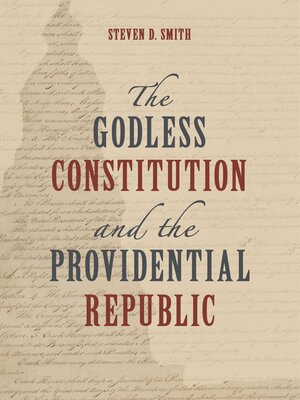The Godless Constitution and the Providential Republic
ebook ∣ Emory University Studies in Law and Religion (EUSLR)
By Steven D. Smith

Sign up to save your library
With an OverDrive account, you can save your favorite libraries for at-a-glance information about availability. Find out more about OverDrive accounts.
Find this title in Libby, the library reading app by OverDrive.



Search for a digital library with this title
Title found at these libraries:
| Library Name | Distance |
|---|---|
| Loading... |
Were America's founding ideals religious or secular? In this timely and well-researched book, law scholar Steven D. Smith makes the case that the United States of America was founded on a providentialist view—the belief that God actively directs the destinies not only of individuals but of nations. Smith shows how this providentialist perspective was pervasively, officially, and unapologetically expressed in essential public documents like the Declaration of Independence and by presidents from Washington, Adams, Jefferson, Madison, and Lincoln to modern presidents including FDR, Eisenhower, Kennedy, and Obama. A crucial point in Smith's argument is that the Constitution neither prescribed nor forbade this providentialist understanding; it was like an agnostic parent who allowed their children the freedom to follow a religious or nonreligious path, as they wished. In modern times, by contrast, the courts and the legal and academic communities have frequently misinterpreted the Constitution as mandating governance that is completely secular. In so doing, they have effectively banished the providentialist perspective from American public philosophy. The consequences of this banishment have been deeply disruptive, contributing to dangerous polarization and lack of trust in government and other public institutions. Smith's compelling study is an essential resource for making sense of current debates about the place of religion in American public life. Readers will gain a deeper understanding of the extent to which secular neutrality is not mandated by the Constitution but rather is a modern invention with little grounding in the nation's history.







